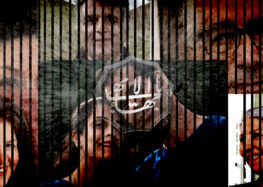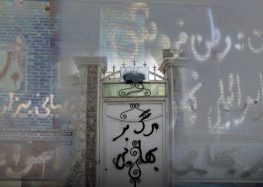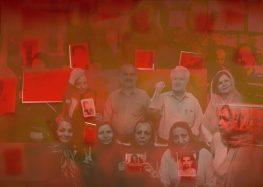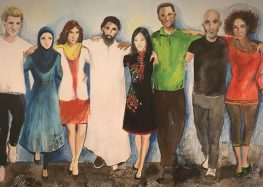UN Should Condemn Renewed Crackdown on Persecuted Baha’i Faith in Iran
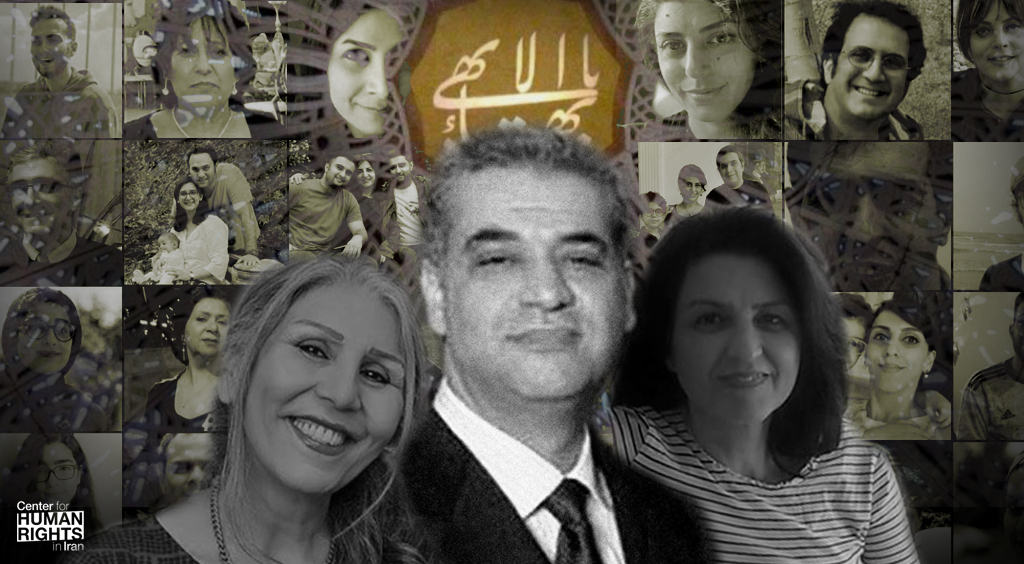
August 5, 2022 – Increasing arbitrary arrests of members of the persecuted Baha’i faith in Iran, and an intensifying government-sponsored campaign of destruction and confiscation of their properties should be internationally condemned, said the Center for Human Rights in Iran (CHRI).
Ahmed Shaheed, the UN Special Rapporteur on freedom of religion or belief, should demand accountability for the state’s ruthless and systematic persecution of the minority religion.
“It has been the Islamic Republic’s modus operandi to ratchet up repressive measures against religious and ethnic minorities whenever popular discontent and international pressure are on the rise,” said CHRI Executive Director Hadi Ghaemi.
“It tries to make a scapegoat of these vulnerable groups to dodge criticism for its failures,” he added.
“The Islamic Republic’s latest actions against Baha’is are a reminder of the systematic persecution of the community in the first decade after the revolution of 1979, which set the tone for the regime’s approach towards all human rights,” said Ghaemi.
CHRI calls for the immediate and unconditional release of all members of the persecuted community from arbitrary detention.
Bahai’s Detained, Homes Raided, Properties Destroyed
The Baha’i community is one of the most severely persecuted religious minorities in the country.
Although Article 23 of the Iranian constitution states that “no one may be molested or taken to task simply for holding a certain belief,” followers of the faith are denied many rights including property ownership, equal burial rights, and access to higher education.
On July 31, 2022, security agents raided the homes of more than 35 Baha’is, conducted illegal searches of the houses without warrants, and arbitrarily arrested at least six Baha’is including former leaders of the banned religious community Mahvash Sabet, Fariba Kamalabadi, and Afif Naeimi. All three have already spent 10 years in prison for their religious beliefs.
Suffering from heart disease, Naeimi’s exact place of detention is being kept secret and the authorities have refused to notify his family about his health status.
“Among the arrested Baha’is, it is only Afif Naeimi who is being held incommunicado,” attorney Saeid Dehghan tweeted on August 4 while raising concerns about his former client’s health. “During his previous imprisonment, he was often hospitalized in the Tehran Heart Center.”
Reports of other arrests include Saman Ostovar in Karaj, Soha Sabeti in Sari, and Behnam Momtazi in Qazvin.
Dozens of Baha’i homes have also been unlawfully searched in the cities of Tehran, Shiraz, Mashhad, Karaj, Sari, and Gorgan.
On August 1, the Ministry of Intelligence confirmed the raids and announced it had arrested “core members of the Baha’i espionage party,” accusing them of spying for Israel, “widespread propagation of Baha’i teachings,” “infiltrating educational institutions at various levels, especially child daycare centers throughout the country,” and an “organized campaign against the hijab in Iran.”
The ministry provided no evidence for its claims, which resemble other unsubstantiated statements that the government routinely touts to defame dissidents, activists, and religious and ethnic minorities.
“It’s hard to be imprisoned, even in the best of prisons,” said former Baha’i faith leader Fariba Kamalabadi in an interview with CHRI in 2017 after she had completed a 10-year prison sentence on fabricated charges.
“But despite all this hardship, we Baha’is love the holy land of Iran,” she added. “We would love to serve Iran so that these things don’t get repeated for our children and our compatriots.”
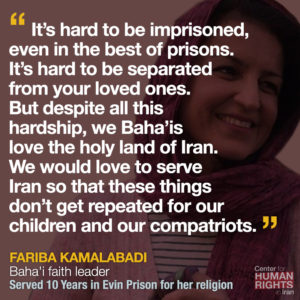 Kamalabadi is among those detained in the state’s recent crackdown.
Kamalabadi is among those detained in the state’s recent crackdown.
On August 2, the authorities raided the village of Roshankuh in northern Iran’s Mazandaran Province and admitted destroying at least eight homes belonging to Baha’i families and confiscating 20 hectares of their land.
A similar raid was carried out on the nearby village of Ivel in November 2020, resulting in the confiscation of properties belonging to 27 Baha’is.
Government confiscation of properties belonging to religious minorities is not uncommon in Iran.
In July 2017, the Revolutionary Court in Sardasht, West Azerbaijan Province, ordered the confiscation of all properties belonging to human rights activists Hiva Mowlania and Kaveh Khezri. They were accused of “escaping the country and getting support from foreign media.”
The confiscated properties included a 5.4-acre orchard, 3.7 acres of agricultural land, and a 50 percent share of their polyethylene plant in the city of Sardasht.
In July 2016, the largest Persian-speaking Protestant community in Iran, Jama’at-e Rabbani, announced that it had been stripped of its ownership of Sharon Gardens, a large and valuable piece of real estate in the city of Karaj, by an organization operating under the supervision of Supreme Leader Ali Khamenei.
Two months earlier, a member of the persecuted Baha’i faith, Ziaollah Motearefi, detailed how the Iranian government had confiscated 50 hectares of his land in an interview with CHRI in 2019.
“If they had told me from day one that I cannot work in my country because of my religion, I would have left and spared myself all the hard work,” he said. “I could have worked and had a comfortable life anywhere in the world. But I stayed here because I love my country.”
Amid the state’s most recent crackdown on the minority faith, nine people convicted of the fabricated charge of “propaganda against the state through activities in promotion of the Baha’i cult” began serving a one-year house arrest sentence on August 2, 2022, with electronic tracking devices restricting their movements to within 500 meters of their homes.
Also, despite passing the country’s notoriously difficult university entrance exams, at least 14 Baha’is have been barred from enrolling in universities after authorities discovered their religious affiliation.
Baha’is are routinely denied the right to higher education in Iran, either by being banned from enrolling in a university or being expelled without a proper explanation once enrolled in the school.
“These developments in the course of just a few days demonstrate that the Islamic Republic remains determined to continue its policy of purging Baha’is from every corner of the country,” said Ghaemi.
“The ascension of Ebrahim Raisi to the presidency in 2021, as a symbol of Iran’s darkest period of repression in the 1980s, has lengthened the Islamic Republic’s dismal human rights record and raised serious fears of a return to the mass terror of decades past,” he added.
Read this article in Persian

